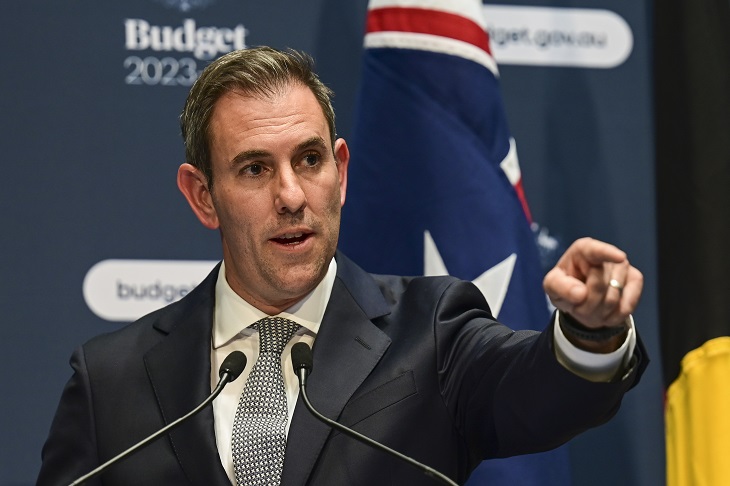In January 2023, Treasurer Jim Chalmers released a major policy ‘think piece’ where he detailed his and (presumably Labor’s) vision for a new capitalism in Australia. Described as a Plan for a Rebirth of Australian Capitalism, Chalmers talked in general terms of the ‘…beginnings of a new economic model…’ a ‘…values-based capitalism…’ where ‘…2023 will be the year we build a better capitalism…’
Chalmers’ ‘think piece’ laid out principles without specifics. However, the huge phase-one overturning of established industrial relations laws and (arguably) the de facto nationalisation of the gas sector in late 2022 had already provided specific details for Chalmers’ announced principles.
Now another phase can be understood. This next phase involves the effective trashing of the principles and practices of Australian competition law. And the term ‘trashing’ is not a hyped-up overstatement to describe the government’s plan.
Later this year the government intends to introduce legislation to cover ‘employee-like’ independent contractors. No proposed legislation has been provided, but in mid-April, the Department of Employment and Workplace Relations (DEWR) released a Consultation Paper. In many respects the paper somewhat echoes the vagueness and broad principle statements of Chalmers’ January paper. But the DEWR paper makes one thing abundantly clear…
The government’s plan is to allow employment regulation to regulate commercial contracts.
On any assessment, this is a massive step across a fundamental threshold, the principles and practices of which are basic to the current operation of our economy.
Put simply, competition law regulates commercial contracts. Employment law regulates employment contracts. The government is intent on upending this.
The plan is to legislatively redefine commercial contracts to be employment contracts on the alleged grounds that some self-employed people are ‘employee-like’. More specifically, the plan is to bring commercial contracts into the industrial relations system.
The industrial relations system – that is, unions and the Fair Work Commission – would then have jurisdictional coverage of these commercial contracts.
To repeat, this is a threshold issue. The government’s claim is that this can be done and limited to just some contracts. But this is not feasible. Once any commercial contract is dragged into the arms of the industrial relations system, the Rubicon has been crossed. Australian capitalism and the economy will be re-engineered beyond anything promised or contemplated at the last federal election.
The provisions will immediately set up a clash between competition law and employment regulation. Specifically, the ACCC and the Fair Work Commission (FWC) will both be required to regulate commercial contracts that have been declared ‘employee-like’, but each with different and opposing public policy objectives. The ACCC to prevent collusion over pricing and to ensure competition. The FWC to facilitate price collusion, thereby creating the circumstances for anti-competitive behaviour which the ACCC will have no power to stop.
If there were ever a policy to rip apart competition policy and eviscerate the Australian Consumer and Competition Commission (ACCC), here it is. The divide between the commercial contract and the employment contract is sacrosanct. That’s not my view but that of the Australian High Court.
The High Court declared in February 2022 (The Personnel Case) that:
The employment relationship with which the common law is concerned must be a legal relationship. It is not a social or psychological concept like friendship. There is nothing artificial about limiting the consideration of legal relationships to legal concepts such as rights and duties.
By contrast, there is nothing of concern to the law that would require treating the relationship between the parties as affected by circumstances, facts, or occurrences that otherwise have no bearing upon legal rights. (at 22)
The ‘employee-like’ concept is a social or psychological concept that holds that some self-employed people are ‘employee-like’. In pursuing this ‘employee-like’ concept the proposed policy stands in direct conflict with legal reality as explained by the High Court.
That is, the government’s policy invites a clash with the legal facts of common law. At common law, there is nothing in-between an employment contract and a commercial contract. Consumer law, competition law, and industrial relations law have been developed since Federation, at least, on this clear, simple distinction. This is the law, and this is common sense.
In effect, the plan is to ‘invent’ a new legislative contract form that is outside common law to thwart common law contract. In the absence of common sense and respect for common law, there is nothing to stop a Parliament from creating such a legislative instrument.
Even Labor’s alleged respect for Australia’s International Labour Organisation (ILO) obligations can be thwarted by this legislative adventure. The ILO declared in 2006 that, ‘National policy for protection of workers in an employment relationship should not interfere with true civil and commercial relationships…’ This ILO declaration became an Australian international obligation when, in 2006, Parliament passed the Independent Contractors Act and the sham contracting laws.
But what reeks of duplicity is that this is to be done under the pretext that some self-employed people need ‘protections’. This ignores the fact that major ‘protections’ for the self-employed are already in place and more are coming.
The sham contracting laws in Australia are possibly the strongest in the world. The Independent Contractors Act outlaws payment below similar pay to an employee. ‘Beefed up’ unfair contract laws begin in November 2023 and will be handled by the ACCC. Collective bargaining for the self-employed is already available through the ACCC. Improved, easier dispute-resolution can be made available through small business ombudsmen and more. And new ‘pay on time’ laws are currently being considered.
Significantly, however, all these self-employed, independent contractor ‘protections’ are provided under commercial contract frameworks and within the ambit of competition law.
At its base level, the government’s ‘employee-like’ agenda is a direct attack against small business people. It’s a move to deny individuals the right to be their own boss.
On an expanded level, the agenda is a radical assault upon the underpinnings of competition law and the jurisdiction and powers of the ACCC. If anyone was unsure about what Treasurer Chalmers meant when promising a ‘rebirth of Australian capitalism’ to create a ‘new economic model’, there can be no uncertainty now!
Ken Phillips is Executive Director of Self-Employed Australia and publishes on Substack.
Got something to add? Join the discussion and comment below.
Get 10 issues for just $10
Subscribe to The Spectator Australia today for the next 10 magazine issues, plus full online access, for just $10.


























Comments
Don't miss out
Join the conversation with other Spectator Australia readers. Subscribe to leave a comment.
SUBSCRIBEAlready a subscriber? Log in